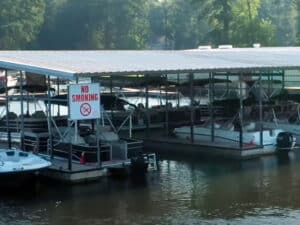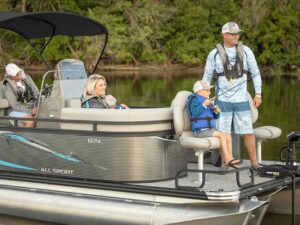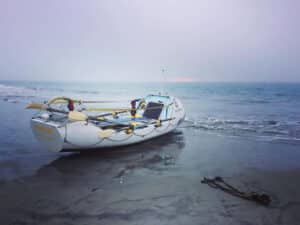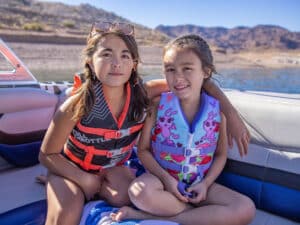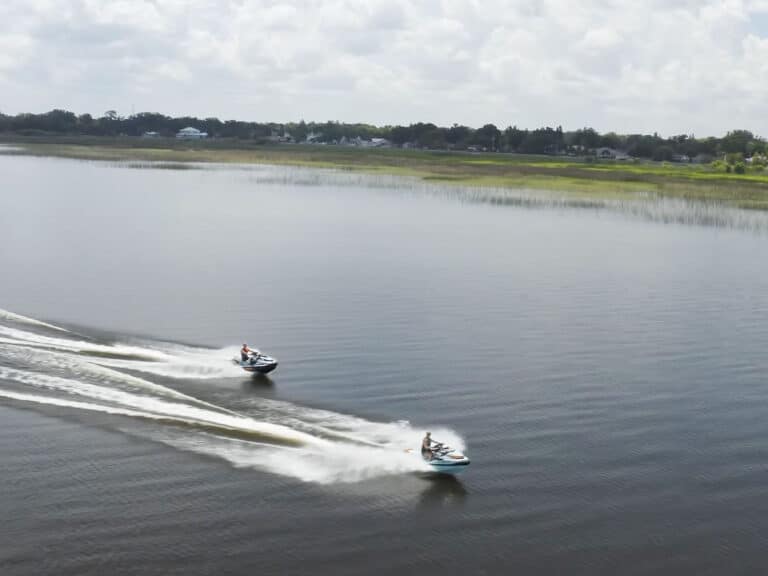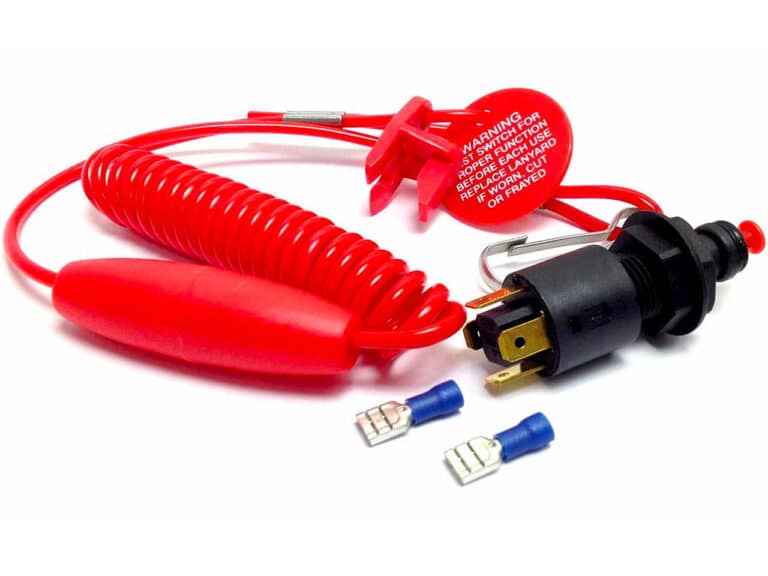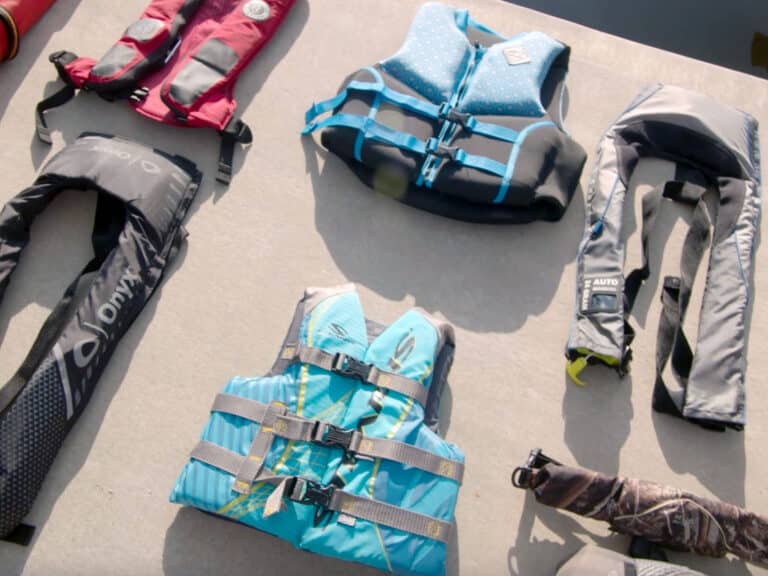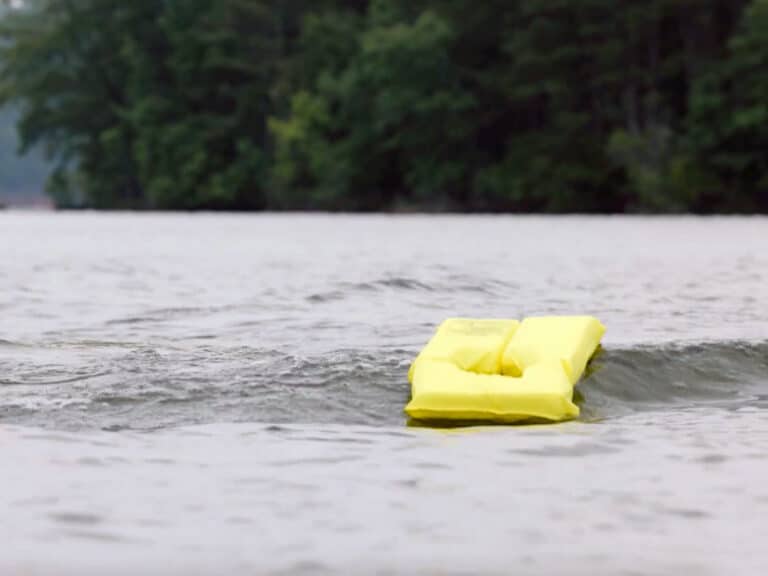Whether you’re a new boater preparing to cast off for the first time or a seasoned veteran at the helm, an on-water course is a fun and affordable way to learn essential boating skills.
A typical Introduction to Powerboating course includes about three hours of on-water training with a licensed captain and two or three fellow students. There’s no better way to learn basic concepts, practice docking skills and get some valuable time on the helm. As your boating skills improve – or if you’re already an experienced captain looking to hone your boat-handling edge – you can step up to courses in advanced boat-handling, precision docking, and open-water maneuvering. There’s no better way to quickly gain experience and confidence.
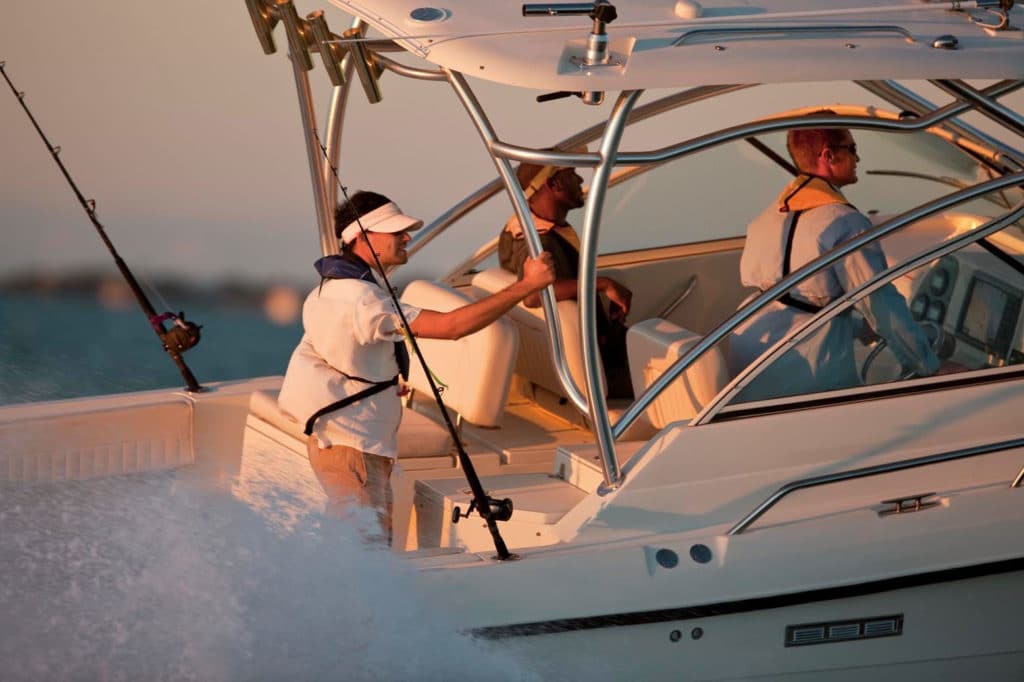
A Problem For All To See
One quick flip through the internet is all it takes to understand the consequences of inadequate or nonexistent skills training. Videos of wild accidents and unbelievable mishaps are everywhere you look, not because oblivious boaters are a new phenomenon (boat-ramp fails are as old as the scratches on your granddad’s runabout) but because so many mishaps these days are captured on camera.
The Qualified Captain started as an Instagram page poking fun at “clueless acts from uneducated boaters” around the founders’ local marina. The silly high jinks were so plentiful that the page soon went national. Now it’s an internet phenomenon. “The Qualified Captain began as a page to make fun of people who just don’t have a clue about the water,” says founder and owner Aaron Stasiak. “Now, the goal is to help people learn from other’s mistakes. It keeps people on their toes, and, ultimately, raises awareness about safety on the water.”
One of the best ways to do that is to take a boating safety course. While not required in every state (a fact that Stasiak says “blows our minds”) boater safety education is always a good idea.
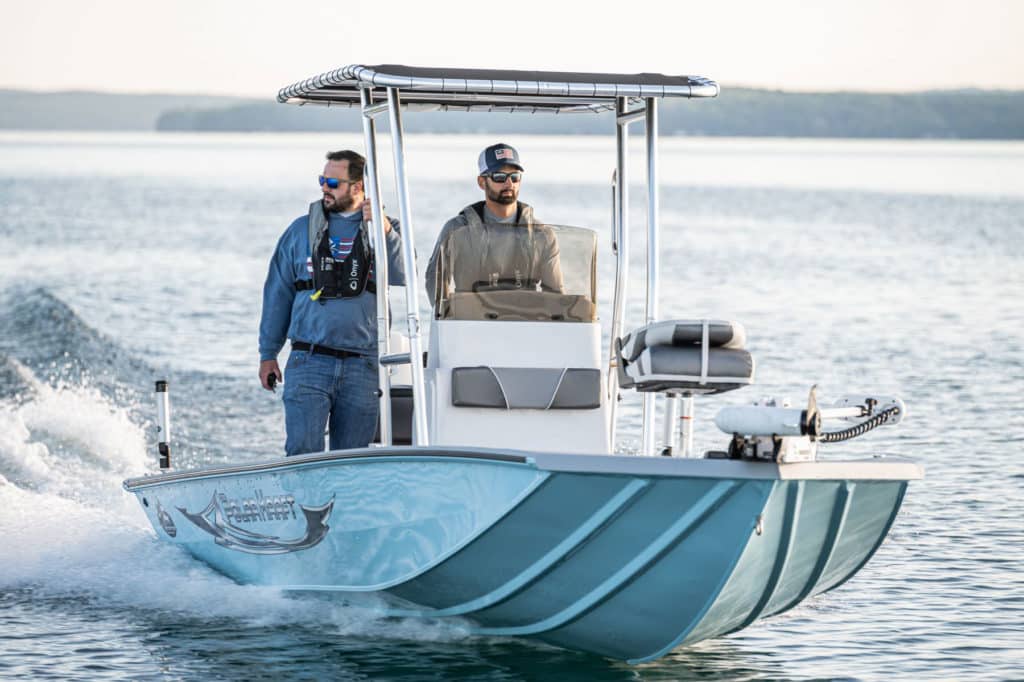
Everything in life comes with a certain amount of risk. When you get into your car to run an errand, you’re taking a chance. The same is true every time you step onto a boat. When you’re at the helm, the safety of the vessel and everyone aboard rests on your shoulders, and while your boat may have a steering wheel and a throttle, it doesn’t behave like your car. Operating a vessel comes with its own set of rules and realities, from the effect of wind and current to the disturbing absence of a brake pedal.
If you’re a new boater, you’ll want to get up to speed before you cast off on your own. A good place to start is your dealer. Many boat dealerships offer their own training programs, or can refer you to local boating schools or training captains.

Another great resource is the U.S. Coast Guard Auxiliary, which offers virtual and classroom instruction to boaters of all levels. A variety of courses is available, covering everything from basic boating safety to specialized instruction catering to hunters, anglers, paddlers and sailors. You’ll find a description of all the courses on the U.S. Coast Guard Auxiliary website [http://www.cgaux.org/boatinged/], including a zip-code finder that instantly pulls up courses near you. An all-day Boat America classroom session runs about $60 in most places, and some insurance companies offer discounts to boaters who successfully complete the course.
The Boat U.S. Foundation is another fantastic source for boater education. The nonprofit offers free online courses, provides links to classroom courses in your area, and can set you up with on-water training. The Boat U.S. free online safety course is available in multiple versions tailored to individual state laws and regulations. In all its versions, the course has six lessons, each with a 10-question quiz at the end, plus a final exam. The course typically takes four to eight hours to complete on your own schedule, and is almost certain to improve your boating knowledge.
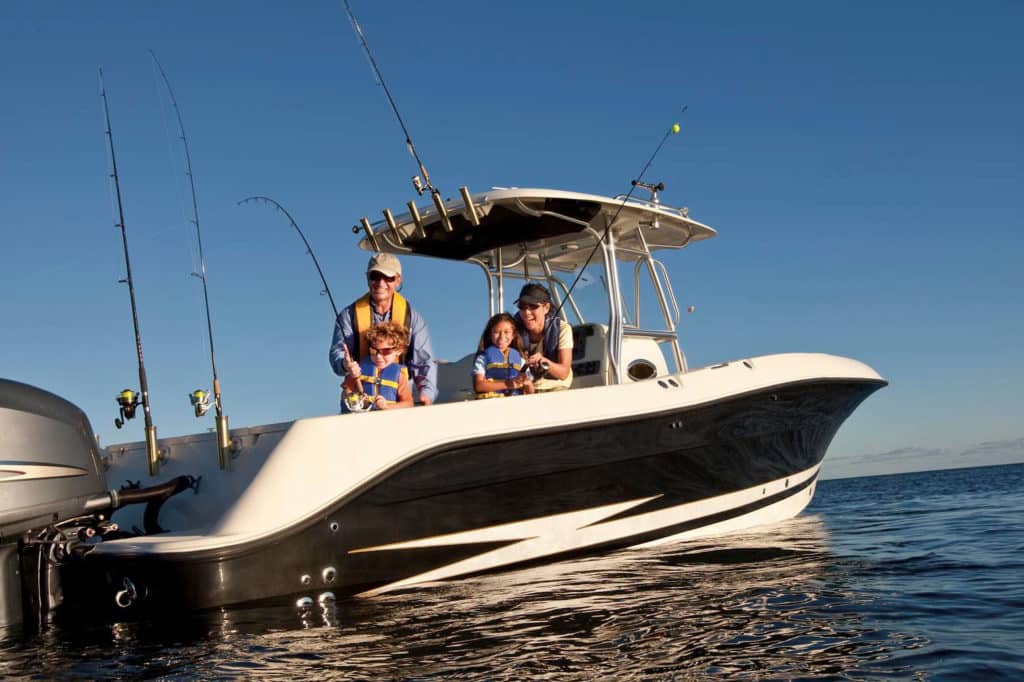
This course is great for boaters of any age or experience, and many states require boating licenses or safety-course certificates for boaters under a certain age. These age limits don’t always apply to youngsters, either – in Maryland anyone under 50 needs their boating card, and there are a dozen other states where you won’t be grandfathered out unless you’re already old enough to be a grandparent. (The American Boating Association maintains a handy list of license requirements in every U.S. state and territory). Even if you’ve captained a boat for decades, it’s never a bad idea to take a refresher course. In addition to the free online course, Boat U.S. also offers an array of beginner and advanced online courses such as ‘How to Use GPS’, ‘AIS for Boaters’ and ‘Weather for Boaters’, ranging from $8 to $40.
When it comes to learning boating skills though, nothing beats hands-on practice under the watchful eye of a U.S. Coast Guard-licensed captain. The Boat U.S. On-Water Training Program is a great option for brand new boaters, as well as experienced captains looking to enhance their skills and understanding of boating safety. Plus, it’s fun. Who’s going to say no to a day on the water with like-minded boaters? A typical outing runs about three hours with a licensed instructor and three or four students. The cost varies depending on when you book, where you live and what course you take, but typically ranges from $149 to $199. Find a training center location near you here.
The responsibility that comes with boat ownership and captaining a vessel can not be overstated. The educational resources available online and on the water make it easier than ever to gain the knowledge and confidence to make every day on the water safe and fun.
Additional Boating Safety Resources
American Canoe Association
Comprehensive resource to find skills courses, assessments, and instructor certification courses for kayak, canoe, raft, safety & rescue, and adaptive paddling.
BoatEd
Offers online boating safety courses with online certification tests for a number of states.
BoaterExam.com
Offers online boating safety courses with online certification tests for a number of states.
Boatsafe
Offers an online Basic Boating Certification Course approved by the National Association of State Boating Law Administrators, and a Coastal Navigation Course.
Commander Bob
An award-winning website that advances boating education.
PWC Safety School
Offers online courses and certification for PWC operators in several states.
Safe Boating America
Safe Boating America classes meet the State Educational Requirements for operating a Boat or PWC and also meet the requirements for a Youth Operator.
State Courses
Many states offer boating safety courses. The National Association of State Boating Law Administrators’ online Directory provides contact information for state boating agencies.
United States Power Squadron
“America’s Boating Course 3rd Edition” the most comprehensive boating safety course available. It includes a course book, a narrated student CD and a digital charting DVD and is available as a classroom, home study or online course.
U.S. Coast Guard Auxiliary
Local flotillas offer a variety of safety classes, including basic/introductory boating courses and safety courses, navigation, sailing and personal watercraft safety, among others.
U.S. Sailing
Programs offer instruction in small and large sailboats, windsurfers, and powerboats. All levels of instruction are available around the country for beginner to advanced skills.
The U.S. Coast Guard is asking all boat owners and operators to help reduce fatalities, injuries, property damage, and associated healthcare costs related to recreational boating accidents by taking personal responsibility for their own safety and the safety of their passengers. Essential steps include: wearing a life jacket at all times and requiring passengers to do the same; never boating under the influence (BUI); successfully completing a boating safety course; and getting a Vessel Safety Check (VSC) annually from local U.S. Coast Guard Auxiliary, United States Power Squadrons®, or your state boating agency’s Vessel Examiners. The U.S. Coast Guard reminds all boaters to “Boat Responsibly!” For more tips on boating safety, visit www.uscgboating.org.

